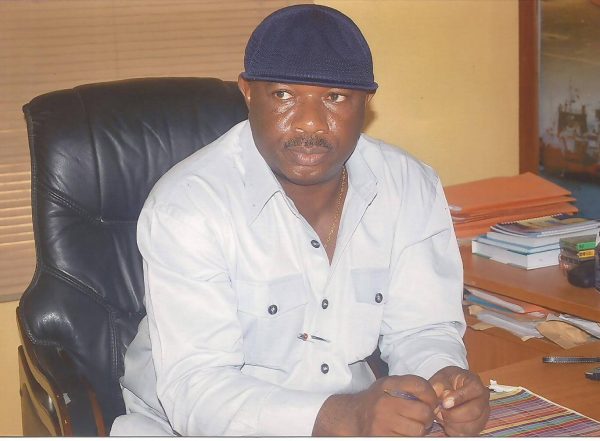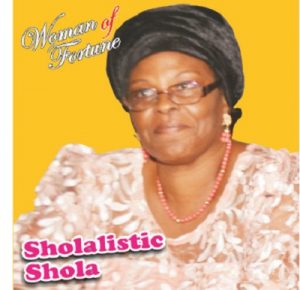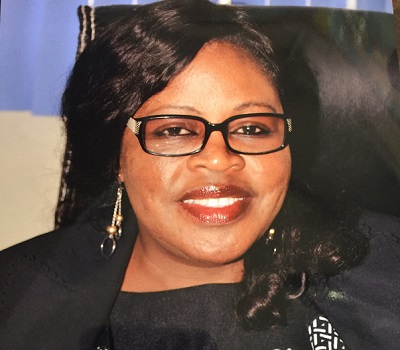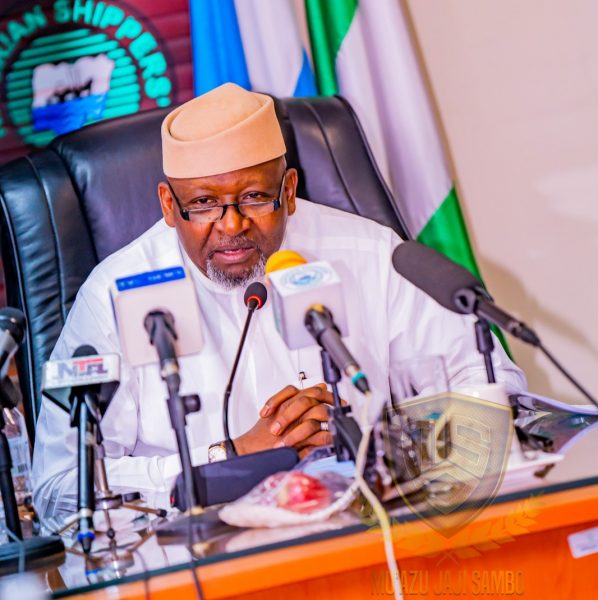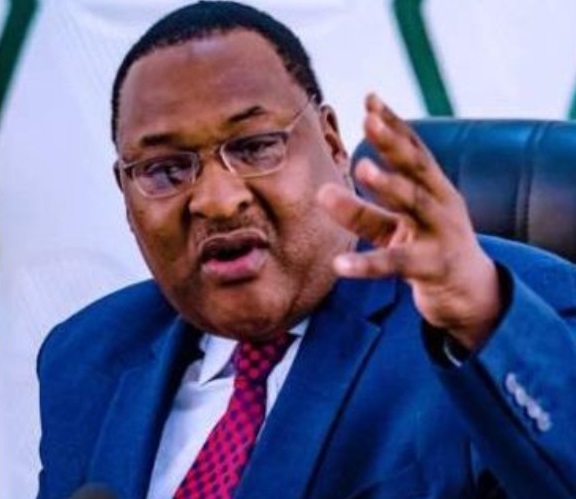MMS Hall Of Fame Is About Building The Next Generation Of Leaders – Anaroke
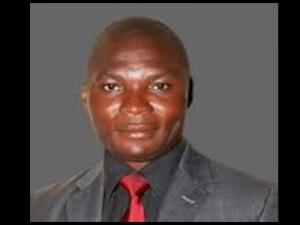
Last week, we brought you an exclusive interview by Mr. Kingsley Anaroke, publisher/Editor-in-chief of MMS Plus, a robust Maritime Newspaper, and the founder of the MMS Hall of Fame, an annual platform set up to spotlight successful women in the industries. Today, in the concluding part of that interesting interview, Anaroke speaks more about the forthcoming Hall of Fame event with a spotlight on the individual women to be inducted. He also speaks on the leadership problem plaguing the Maritime Industry and airs his opinion about the appointment of the new Customs CG, Col. Hameed Ali (retd.).
Enjoy:
Please tell us about the successes you’ve recorded so far in running MMS Hall of Fame event. How has the programme been received by your audience?
We have talked about creating awareness. From awareness creation, we have the likes of Vanguard, the SUN, even AIT have bought into our programme by equally celebrating women professionals. Maybe because of the bad economy, none of them did any programme this year. I know they did it last year and two years ago. And then at the ministry, shortly after we got collaboration from the Federal Ministry of Women Affair and Social Development, many other people started going to the ministry to get collaboration. Now, many private sector partners the ministry to do one programme on women or the other. Invariably, the work the ministry should be doing, the private sector is helping to drive that process, and I can say it all started with MMS Hall of Fame.
Two, people are getting more conscious of what I’ve been talking about in the industry. In the maritime industry today, we’ve been talking about NIMASA leaving a certain percentage of CVFF fund for women, and in doing this, there should be women-friendly banks to handle the project and give out the funds to women who desire to go into ship ownership or get into the maritime business as the law allows.
From the women we’ve profiled, people are beginning to see that these things are possible. Areas they never knew were possible, they’re now beginning to see it’s possible. Women are beginning to rise and step forward. We have WILAT there, we have WISTA there, and they’ve done well for themselves. But before MMS came, they were not so popular. We came and popularized them. Now everybody wants to identify with WILAT, everybody wants to identify with WISTA. We took them to a higher platform by profiling individual members of the organizations. Some of them today have gotten jobs just because of the profiling we did. Some people have gotten consultancy jobs, and have spoken at events and seminars because of the profiling we did.
Access Bank has also started something on women. Since we started, we’ve been inviting them to programmes but they’ve been very shy. Now, they have copied us. When we started the ‘Hall of Fame,’ Bank of Industry also started theirs as well, two or three years after we started ours. Their own is in the area of providing capital for women to go into entrepreneurship. And we’re presenting to you these entrepreneurs, to say to you, ‘you can do it, too.’ It is only when you get encouraged that you begin to talk about how to get fund. And then in getting fund, you have to meet Access Bank. But you need us to show you that people have done these things without problem. That’s exactly what we’ve done over time. The momentum is getting high and we’re taking it to the next level by saying a certain per cent of positions in employment and fund dedication should be given to women in these areas, to be able to make them leverage because we believe that with them, Nigeria will be better.
Let’s talk about the challenges you’ve encountered in the process of running this event annually?
In fact, running MMS Hall of Fame, if not for the passion we have, we would have abandoned it because, one; before we got collaboration from the Federal Ministry of Women Affairs and Social Development, it was not very easy. For reasons I do not understand, one of the Assistant Directors in the ministry on whose table our proposal was lying to make recommendations to the minister, refused to send it forward to the minister. He told me to my face that, ‘I will not recommend this proposal to the minister because I don’t know what you people really want to do’.
Not only that; he argued over objective of doing something for women when our paper only covered the maritime sector and other sectors. What I asked him was simple: “Do we have women in the maritime industry?” He answered in the affirmative. “Do we have women in the oil and gas industry, the banking industry and the aviation industry?” He said, “Yes.” Then I said to him, these women are Nigerian women and I’m here to do your job for you. Instead of giving me a pat on the back, you’re here discouraging me.
It was a long-drawn battle. For over two hours we were arguing. Unfortunately, we missed getting that collaboration with the ministry that first year. But the following year, we got it when they saw that we were actually out to do something good and that we were not out to beg them for money. We are only saying, “partner with us to do your work.” That was one thing that killed my moral in the first year of Hall of Fame, it was a devastating blow.
And not only that; sometimes when people are nominated to receive our ‘Hall of Fame’ recognition, they decline. Nominations are not done by us alone, the committee is there, the council members are there, and the general public is there, too. Of course, it’s not all nominations that we accept, no. We check the nominees thoroughly and shortlist our awardees from the general list. We don’t take every nomination. We’re talking about imparting morals, both at the business level and the family level. We may say, ‘we don’t want this person because we know her antecedents’.
After that, getting these nominated women to buy into this same nomination becomes a problem. Some of them ask you a barrage of questions; they want to know why you want to do this, why you want to do that, and so on. Because there’re fraudulent people out there, they think everyone that comes their way is a fraudulent person. Some will even tell you they don’t have money to give. I’m not asking for your money. Nobody is asking you to bring money. Please don’t give us any money. MMS Hall of Fame is not for sale. If you like it, fine. If you don’t like it, no problem, we’ll look elsewhere. It is not about money, it’s about creating value in the society. We’re talking about building industry, creating a society that is hassle-free. We’re talking about building the next generation to make Nigeria better.
So how has it been getting sponsorship and corporate endorsement from companies and agencies?
It’s not been easy, I must tell you, especially this year. Some of the companies we spoke with earlier on had to call us again, saying they couldn’t commit anything in the area of money because the year hasn’t been too wonderful. Some told us that rather than doing nothing at all, they would only do something small. So on the strength of doing small, we’re moving. We understand when things are tight for our sponsors, but we’re always looking ahead, no matter what.
Tell us about the caliber of women you’re honouring in this years’ MMS Hall of Fame.
For this years’ Hall of Fame edition with the theme: ‘Capacity Development: Evolving A Viable CSR Initiative’, we have 12 wonderful women we’re honouring. We have the former Minister of Aviation who is now a Senator of the Federal Republic, Stella Oduah. We have the Onyeka Onwenu whom we all know. She’s a celebrated singer and performer, and she’s also the Director-General of the National Centre for Women Development. We have Dr. (Mrs) Chinwe Ijeoma Abama, the GM/Head of Medical services at the NPA.
Then there’s Dr. Ibilola Amao, Principal Consultant at Lonadek Oil and Gas. In fact, this woman is one of the role models I respect personally. Years back, she started the Vision 20:20 idea of building capacity within the oil and gas industry. She has exported many Nigerians abroad and today, she brings in professionals to come and train other people. From our days of ‘Tycoon Magazine’, she has been a partner in our projects. She identified with the company, encouraging us, telling us, ‘do it this way, do it that way.’ What MMS is doing today is like complementing her vision, what she envisioned many years back. We also have barrister Mrs. Sharon Olive Ikeazor, who used to be the APC National Women Leader. We have Mrs. Bola Labinjo, MD of AL Dawood Shipping Ltd. She’s the wife of Capt. Dada Labinjo, President of Nigerian Ship-owners Association.
We also have Mrs. Cathy Echeozo, Deputy Managing Director of Guarantee Trust Bank. And then for the first time, we’re having somebody from the United States in the person of Ms. Anne Etoke, Managing Director of The African Gas Association (TAGA). She’s based in Washington, and she will be coming down here to be a part of this years’ Hall of Fame. We’re inducting her because of her activities in the US. She’s done so well in the oil and gas sector and has touched lives in different areas.
We have Mrs. Oluwatoyin Olajide, the Managing Director of Airpeace Ltd. She’s another woman that has done so well in that area. She was a banker, then she entered the Aviation Industry, before she grew to become the MD of Airpeace. Then we have Mrs. Amaka Onwughalu, MD of Skye Bank Plc. Dr. Amy Jadesinmi, MD of LADOL. Of course, we all know her, the daughter of Chief Ladi, Chairman of LADOL.
And then, another wonderful woman worth celebrating here is Mrs. Tina Vukor. Her banking career spans over 20 years, and she’s quite an achiever. She’s more into building capacity now across several industries like banking and many others. These are the 12 Hall of Famers we’re inducting this year.
Being an industry stakeholder, what in your opinion is the bane of the Maritime Industry in Nigeria?
The key problem we have in the maritime industry is that we don’t get our leadership right. That is the major problem we have. Take NIMASA for instance, they’ve never had consistency in terms of leadership, where a solid succession plan is in place. If this Director General leaves, this is how the next Director General will be appointed. And because there’s nothing like that, you have this ‘trial-and-error’ approach to things. Instead of being grounded and learning before coming, a DG is appointed to learn on the job. And in learning on the job, he makes a lot of blunders. But if there’s consistency and if there’s a direction that points out succession plan, not just anybody will come there as DG.
The same is applicable at the Nigerian Ports Authority (NPA) and in the Shippers’ Council. The level of stability we have in the Shippers’ Council now is because someone who has been in the system rose to head the Council.
So the problem has been that we have not gotten succession plan right across the maritime sector. Look at the Customs today. Even though the Customs may be a cesspool of corruption, what about the NNPC? Why didn’t President Buhari bring in just anybody to come and be the GMD? That is, someone who has no knowledge of oil to come and head the NNPC? What that means is that he (Pres. Buhari) is very mindful of the NNPC because he knows that’s the ‘cash-cow’, that’s the major source of Nigeria’s revenue. So he went and sourced for an expert in that area to come and manage the place. Performance delivery is what Buhari is conscious of in the NNPC. Why is he not conscious of performance delivery in Customs? He brought in a disciplinarian in Customs to come and discipline ‘them’.
You want to discipline somebody, but is it not when you know how to steal that you can catch a thief? You can only catch a thief if you know the game, because thieves have their route. If you don’t know how to beat them at the game, you can’t catch them. Definitely, what the thief wants you to see is what you will see. Buhari has brought in that man (Col. Ali) and at the end of the day, that man will be a disaster.
Hameed will be a disaster, no matter the kind of reforms he wants to carry out by sacking people and making people recover money. In fact, the big officers like ACGs and DCGs will create a ‘soft landing’ for themselves, so that they have a place where they can bank on at the end of the day when they retire. You cannot be an ACG or a DCG for years and then at the end, they will begin to shout that they found N1b in your account. Why won’t they find that in your account? They will have to, because that is what the system wants. So what we’re saying is that at the end of the day, while you’re out looking for N1b in DCGs account, there’re younger officers who have the money in their accounts.
There’re younger officers who are richer than the men up there that you are looking at. Some of them own houses all over town. Convert the prizes of those houses, it runs into billions, more than what you find in any DCG’s account. The money is here in Lagos, not Abuja. The money is in the ports, not in Abuja. So what I’m saying in effect is that the appointment of Hameed Ali, a retired military man as Head of Customs is an aberration.
At best, you can only see some cosmetics approach to things: “We have fired so and so number of officers for corruption, we have handed so and so to EFCC for investigation”, but I’m telling you that bigger scams will be going on underground. And then, the man (Col. Ali) will be sitting on fraud, he will not know he’s sitting on fraud. He has no clue about Customs tariff, and it is that tariff that tells you how much you make, how much is coming in, etc. Ali is a disaster waiting to happen.




